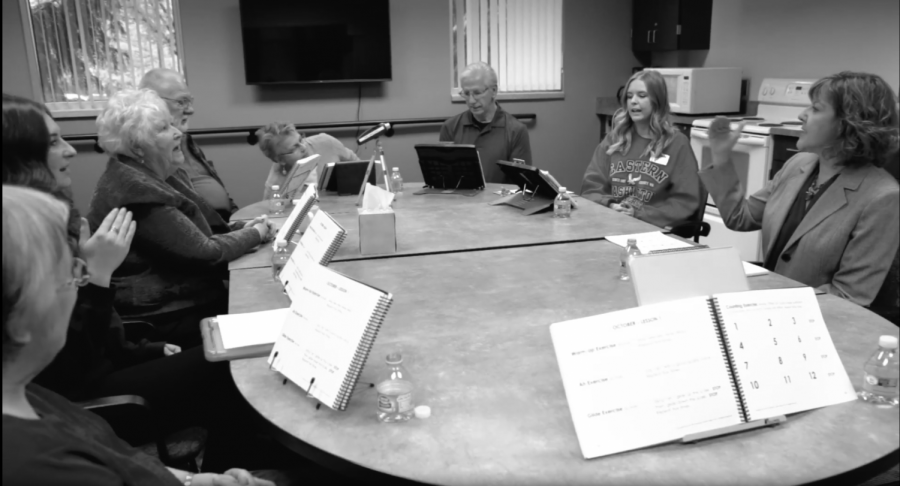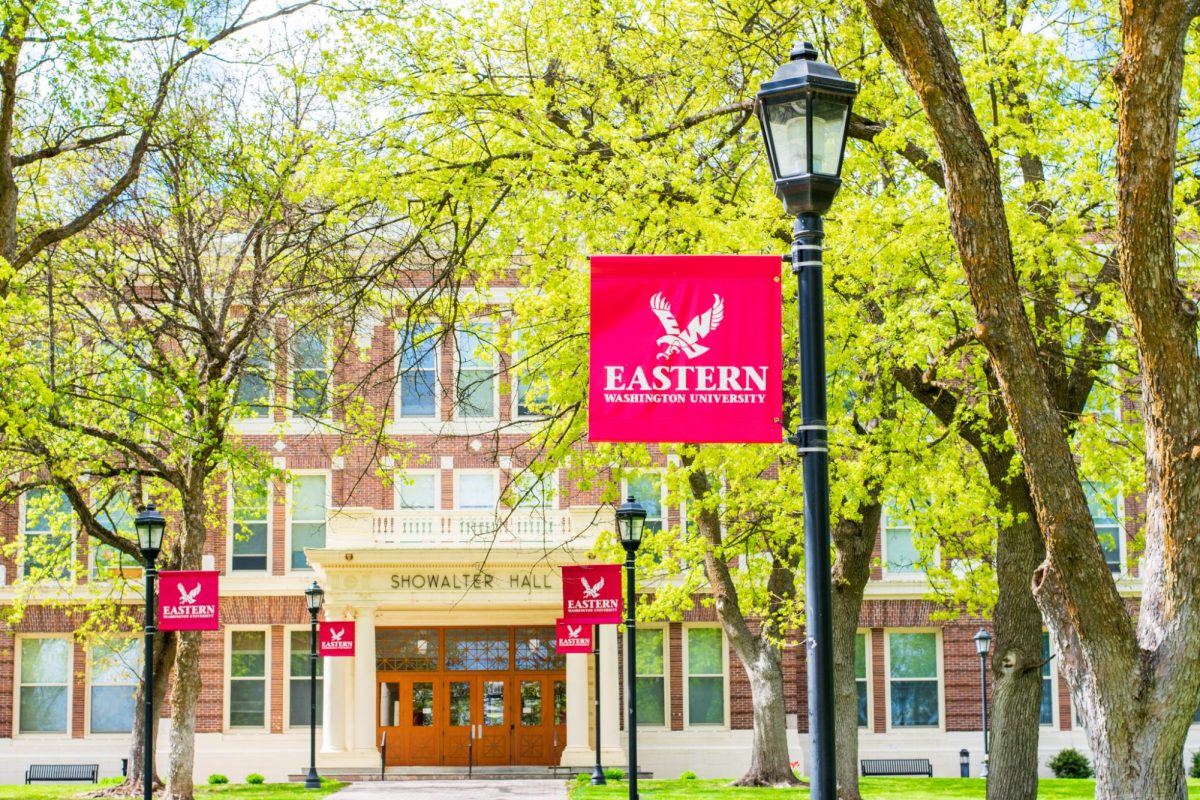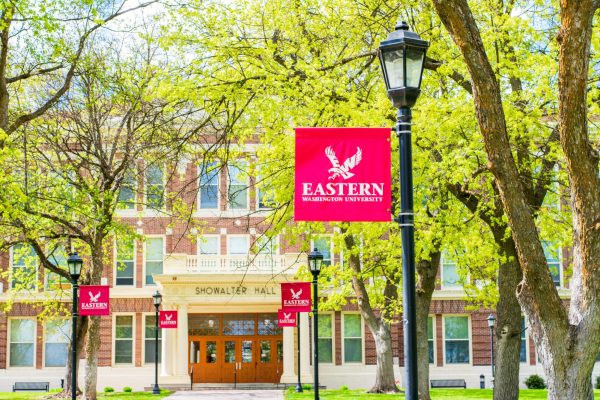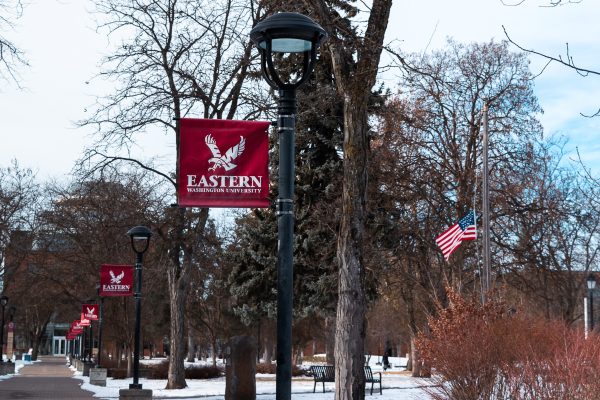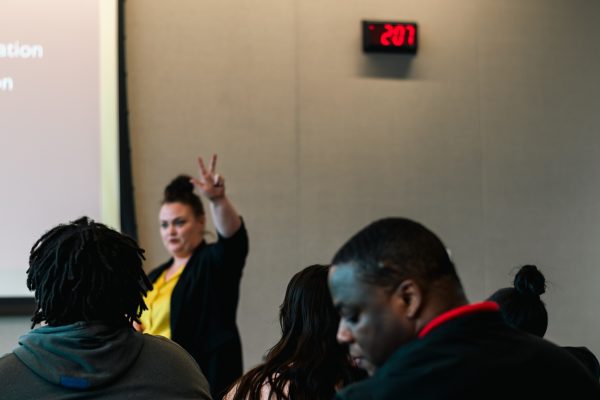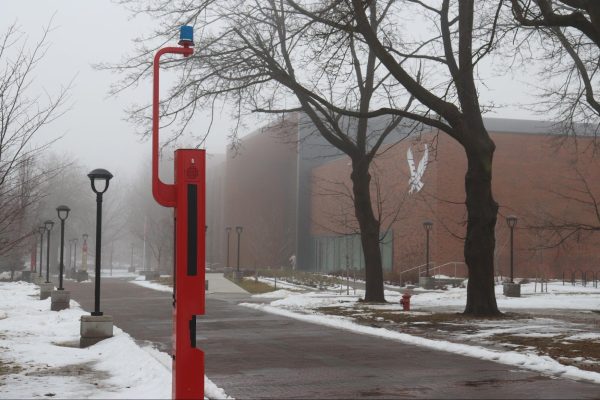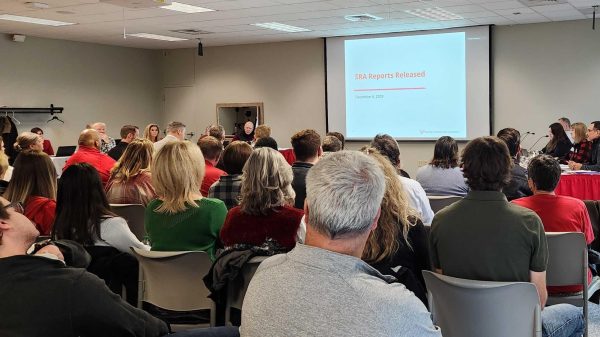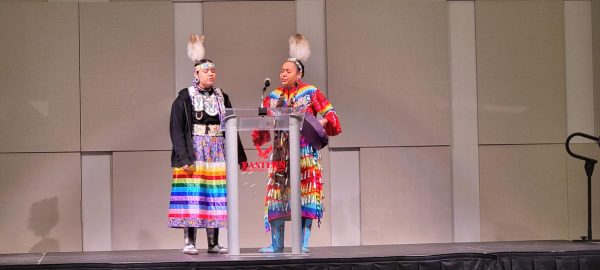Hearing and Speech Clinic replicates program to help give a voice back to those with Parkinson’s
EWU’s Hearing And Speech Clinic go through exercises to help patients speak clearly | Photo courtesy of Parkinson’s Voice Project
February 21, 2018
Replicated by the EWU Hearing and Speech Clinic, the Parkinson’s Voice Project program exists to improve the speech of people suffering from Parkinson’s disease.
A nonprofit that started in Dallas, Texas, the Parkinson’s Voice Project provides speech therapy to patients with Parkinson’s through a pay-it-forward system. One of their missions was to train more speech language pathologists to do this specific treatment. In 2014, four speech language pathologists from EWU went to Dallas and were trained.
Now, they replicate the Parkinson’s Voice Project speech therapy program at the university’s speech and hearing clinic to assist those with Parkinson’s disease.
The clinic director, Doreen Nicholas, was one of the four that originally trained for the program. Before the training she was already passionate about helping those with Parkinson’s disease and came across the program by being a part of a singing group in Spokane for people with Parkinson’s disease called the Tremble Clefs.
“I had been working with the singing group and one of our patient’s spouse found this Parkinson’s Voice Project in Dallas and then that’s how I got involved with it,” Nicholas said. “One of the reasons why I’m interested in Parkinson’s, as well as being a speech language pathologist is my mom had Parkinson’s. So that was kind of another reason it’s a passion of mine and why it interested me was because of my mom.”
Parkinson’s takes away dopamine, so then what happens is some of those automatic speech aspects, like talking with enough volume, diminishes. This treatment works on the non-automatic, so the patients are encouraged to think about speaking with intent. Since people with Parkinson’s disease tend to speak softly, learning to speak with intent increases their decibel levels and their speech intelligibility improves.
“Basically, the research shows that if we increase their decibel level then they naturally and automatically take a bigger breath, they over articulate and then they are more understood,” said Nicholas. “The normal speaking range in decibel level was about 72 to 78 and so that’s our goal. If we can get them back to that 72 to 78 decibel then people understand them more.”
There are two types of types of therapy sessions within the project, SPEAK OUT! and The LOUD Crowd. SPEAK OUT! is the individual therapy session that patients begin with.
“The patients comes in three times a week for individual therapy sessions and that’s the SPEAK OUT! part of the program,” said Nicholas. “With that they are working on getting their decibel levels and using intent.”
Toward the end of 12 sessions of doing SPEAK OUT!, patients are introduced into The LOUD Crowd.
“The LOUD Crowd in the maintenance part of the program, that’s where it’s a group therapy session,” said Nicholas. “So in the group we are doing our warm-up exercises that they are supposed to be doing daily as homework and then we do some activities in the group like choral reading and we might play games …”
EWU students at the clinic are training in a wide variety of speech therapy with an array of patients with disorders and diseases. Parkinson’s is one of the diseases they will be working with throughout their career so it’s important to be exposed to this and the training for the therapy.
“It just makes our training program that much more enriched when we are able to expose our students to different types of patients and different types of treatment,” Nicholas said.
For the patients with Parkinson’s disease the difference the program makes runs deeper than just speech improvement. Being able to communicate better allows the patients to also enhance their socialization and avoid isolation.
“I hope that when we do get them back out into the community, [the training] gets them back out into a family gathering so they don’t isolate and they can continue to do the things they want to do on a daily basis,” Nicholas said .
For anyone that wants to get involved in the program, they are encouraged to call the university’s Hearing and Speech clinic at (509) 828-1323.
Correction: The original story published in the print edition of Issue 17 incorrectly stated that EWU received $650,000 in funding from the Parkinson Voice Project. The Parkinson Voice Project received that money and use it to award funds to organizations who want to replicate their speech therapy programs. The story also incorrectly stated that it was the EWU Parkinson’s Voice Project. The Parkinson’s Voice Project is a nonprofit organization founded in Dallas, Texas. Four speech language pathologists from EWU traveled to Dallas to be trained how to replicate the Parkinson’s Voice Project speech therapy program at the EWU Hearing and Speech Clinic.



